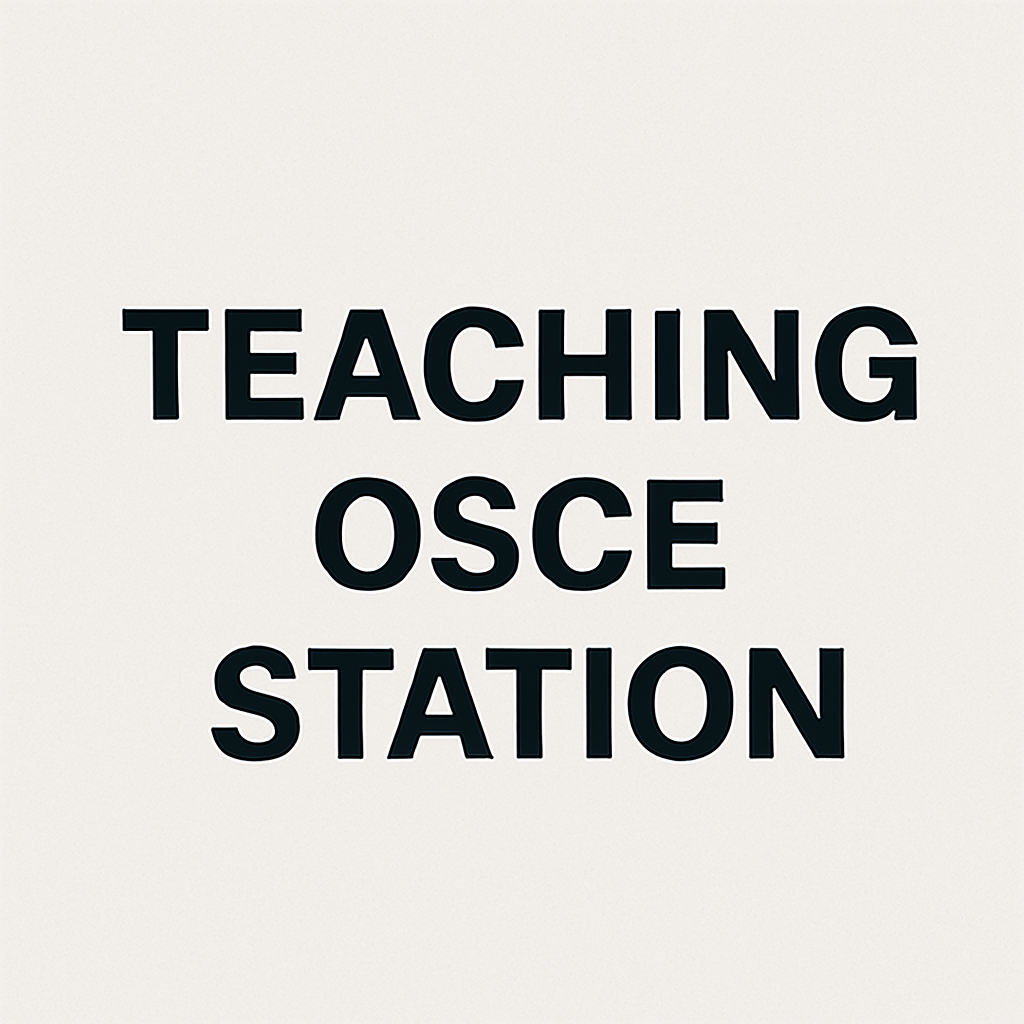Teaching OSCE Station

Teaching OSCE Station – Structured Approach
1. Introduction
• Introduce yourself briefly (name, role, experience).
• Ask the junior:• Name and grade (e.g., "Could you introduce yourself?").• Prior experience with the task/skill ("Have you done/seen this before?).
• Confirm the task ("Today, we’ll focus on [specific OSCE skill/topic].).
• Assess baseline knowledge ("What do you already know about this?).
• Set objectives (Outline 2–3 key goals for the session).
• Offer support ("Let me know if anything is unclear—we’ll adjust as we go.").
2. Structure
• Break the topic into digestible parts (e.g., for chest pain OSCE: history, examination, differentials).
• Teach in chunks:
1. Explain the first objective (e.g., "First, let’s cover key history questions.").
2. Check understanding ("How would you ask about radiation of pain?").
3. Repeat for subsequent objectives.
3. Engagement & Interaction
• Use open-ended questions (e.g., "What red flags would you prioritise?").
• Encourage active participation:• Role-play: "Show me how you’d start the examination."• Think aloud: "Walk me through your differentials."
• Pace clearly: Pause for questions, avoid jargon.
4. Topic Knowledge
• Demonstrate confidence: Use clear, concise explanations.
• Highlight common pitfalls (e.g., "Candidates often forget to check for JVP—here’s why it matters.").
• Use visual aids if possible (e.g., diagrams like in ECG interpretation, Ct scan).
5. Feedback
• Constructive feedback:
• Praise strengths ("Your history was very systematic—well done!").
• Gentle corrections ("Next time, try asking about onset before severity.").
• Offer resources (e.g., guidelines, videos, or practice cases).
6. Closing
• Check to understand: "Summarise the key points we covered."• Q&A: "What questions do you have?"
• Demonstration: "Let’s practice together—you lead this time."
• Correct mistakes supportively: Avoid "No, that’s wrong"; instead, "Good attempt! A tip for next time…"
• Future goals: Agree on a follow-up task (e.g., "Practice this with a colleague and we’ll review next week.").
Dr.Mehdi Teeli
Consultant Emergency Medicine, UK
Deputy Clinical Director (University Teaching Hospitals of East Lancashire NHS Trust)


